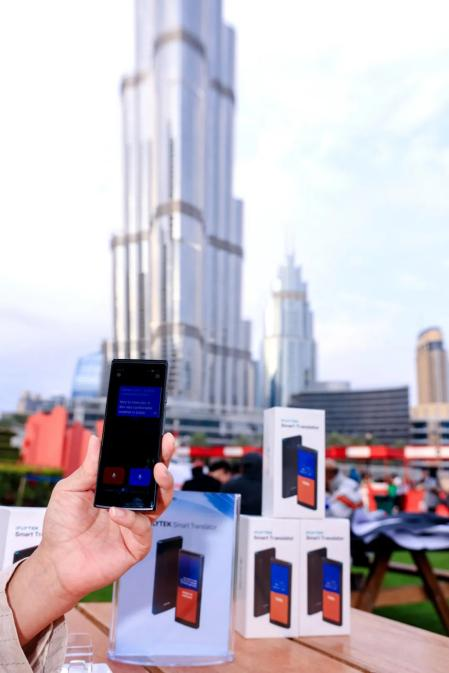
The event opened with iFLYTEK’s AI virtual host “Aliya” introducing the theme “AI Connecting Ideas,” followed by Vice President Vincent Zhan emphasising the company’s commitment to regional digital transformation and local presence. The new products unveiled include the AINOTE 2 e-ink tablet, AI translation earbuds, the Spark WallEX interactive space solution and an All-in-One on-premise large model platform suited for high-security sectors.
The AINOTE 2, billed as the world’s thinnest e-ink tablet, serves multilingual note taking through speech recognition and translation capabilities. During the unveiling, the VP of Guinness World Records for MENA & Türkiye, Talal Omar, presented certification for its dimensions. The AI translation earbuds support real-time conversation across Arabic, English and Chinese, aiming to lower language barriers in regional commerce and diplomacy.
On the enterprise front, iFLYTEK presented its All-in-One AI Solution, a local deployment platform for large language models targeting sectors such as finance and government where data security is critical. The Spark WallEX product transforms physical walls into intelligent interactive surfaces, enabling contextual displays, gesture interactions and spatial AI capabilities.
iFLYTEK emphasises localisation of its technology for the Middle East, citing deployed projects across Saudi Arabia, Abu Dhabi and other GCC cities. Zhan noted that the AINOTE series has climbed to No. 2 in regional e-ink device sales. The firm also highlighted its in-region teams and collaborations aimed at tailoring AI systems for Arabic dialects, dialectical speech recognition and cultural nuances.
Market analysts see this as part of a broader push by Chinese AI firms to embed themselves in Middle Eastern digital transformation programmes. The region is already home to ambitious AI and smart city initiatives, and local authorities prefer vendors that commit to hands-on presence, regulatory compliance and culturally aligned products.
Still, challenges lie ahead. Deployments in regulatory environments across GCC nations must navigate data localisation rules, certification regimes and cybersecurity controls. The on-premise solution aims to address some of that, but convincing highly regulated sectors to adopt AI will require rigorous evaluations, audits and trust-building. Some observers also caution that the marketplace for AI infrastructure is crowded: global players like Microsoft, Google, NVIDIA, and local firms are all pursuing Middle Eastern expansion, raising competition on pricing, integration and support.
Topics
Technology
